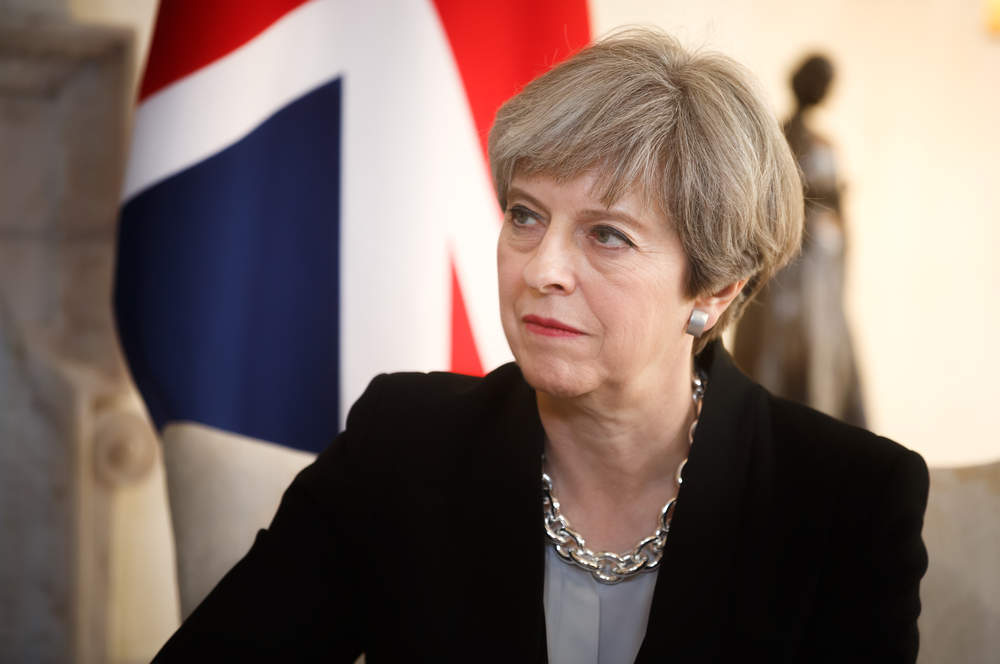
Theresa May said that the Government thinks it is “highly likely that Russia was responsible” for the attempted murder of former Russian double agent Sergei Skripal.
The prime minister spoke to parliament this afternoon after chairing a two-hour meeting of the National Security Council on the issue.
May said that, though the investigation continues, analysis shows that Skripal and his daughter were poisoned using ‘Novichok’, a “military-grade nerve agent of a type developed by Russia”.
Subsequently, the Government has concluded that Moscow either ordered the attack or has lost control of its stock of nerve agents.
May said that this assessment was made in the context of “Russia’s record of conducting state-sponsored assassinations” and “our assessment that Russia views some defectors as legitimate targets for assassinations.”
May also cited Russia’s illegal annexation of Crimea, a “sustained campaign of cyber espionage and disruption” and the models of attacks shown on the United States shown at President Putin’s State of the Union address as evidence of continued Russian aggression.
How well do you really know your competitors?
Access the most comprehensive Company Profiles on the market, powered by GlobalData. Save hours of research. Gain competitive edge.

Thank you!
Your download email will arrive shortly
Not ready to buy yet? Download a free sample
We are confident about the unique quality of our Company Profiles. However, we want you to make the most beneficial decision for your business, so we offer a free sample that you can download by submitting the below form
By GlobalDataThe Russian Ambassador has been summoned to the Foreign Office and asked to explain which of these two explanations is correct by the end of tomorrow.
According to May, Russia failing to give a “credible response” will force the UK government to view the attack as an “unlawful use of force by the Russian state against the United Kingdom”.
May will then return to parliament to map out the British government’s response.
Skripal was found unconscious on a park bench in Salisbury, with his daughter Yulia, on 4 March. Both remain in critical condition in hospital.
The motive and responsibility for the attack has been a subject of intense speculation in the last week, although the government has held off from apportioning blame until today.
Skripal was arrested in 2004 for passing secret information to the British intelligence service MI6 — to the tune of over $100,000 — and was later convicted and imprisoned for ‘high treason’ by the Russian government.
He was given refuge in the UK in 2010 as part of a spy swap between Russia and the US.
Since the incident, footage has been widely shared online of Vladimir Putin, Russia’s President, warning in 2010 that “traitors will kick the bucket”.
The Russian government has staunchly denied any involvement and continues to do so.
Some believe that Moscow may have wanted the attack revenge on Skripal and to frighten other potential double agents.
Lord Ricketts, a former national security adviser, said there was “little doubt that this had come from Russia” while Tom Tugendhat, chairman of the Foreign Affairs Select Committee, said the poisoning looked like “state-sponsored attempted murder”.
Cabinet members avoided outright declarations of Russian responsibility ahead of the Prime Minister’s official statement but some came close, with Foreign Secretary Boris Johnson calling the Russian state a “malign and disruptive force”.
Much of the focus this week has been on what action should be taken if the government does formally blame Russia. Amber Rudd, the home secretary, said that Britain will act ‘powerfully’.
Johnson suggested England should withdraw from the football world cup, which will be hosted in Russia this summer.
Slightly more robust ideas have also been floated: Russian officials and those linked to the Kremlin who own UK property could be placed under much greater scrutiny; Russian-owned assets could be stripped via the wealth orders created last year by the Criminal Finances Act; or, as Philip Hammond has signalled, the government could back US-style so-called Magnitsky sanctions to freeze assets belonging to Moscow officials accused of human rights abuses.
Pressure has been on May to act decisively against Russia.
In 2006, the government’s muted response to the murder of Alexander Litvinenko—another Russian double agent poisoned in similar circumstances—was placed partially at May’s feet due to her position as Home Secretary.
In the years since, she has promised to take a harder line against the state. What that harder line entails is likely to be seen in the Commons in the next couple of days.



